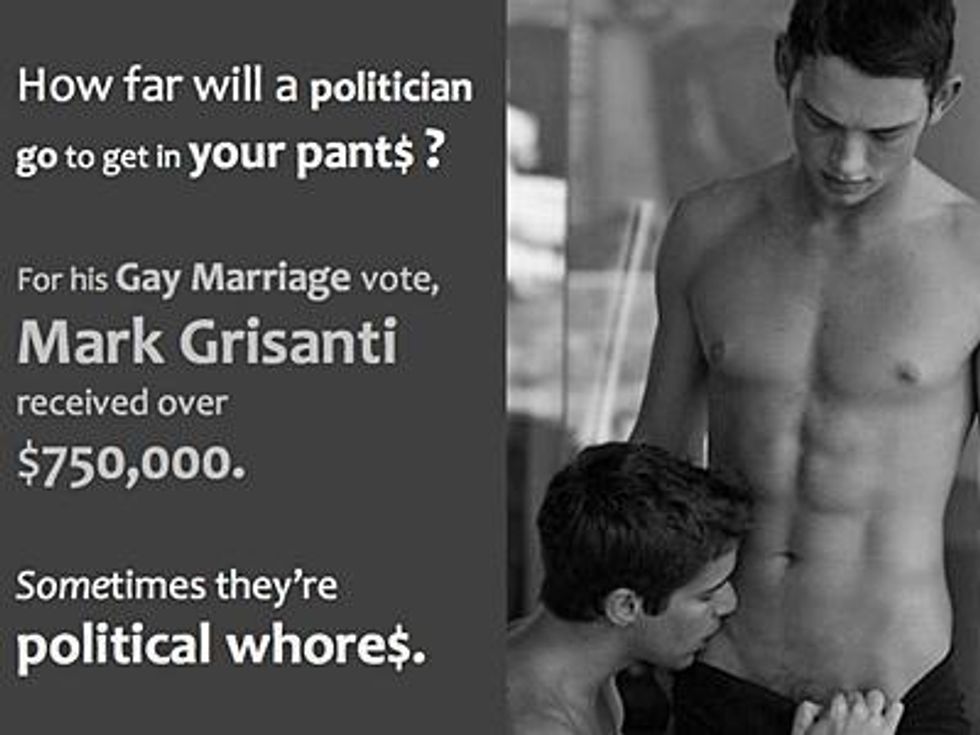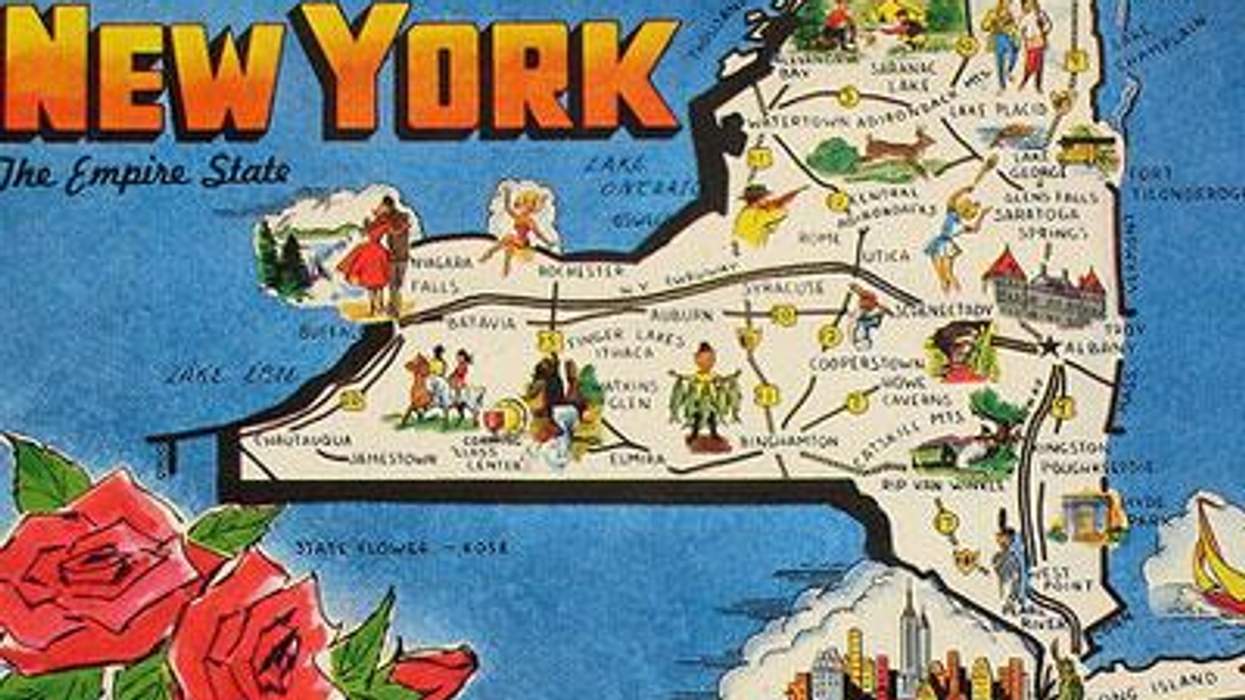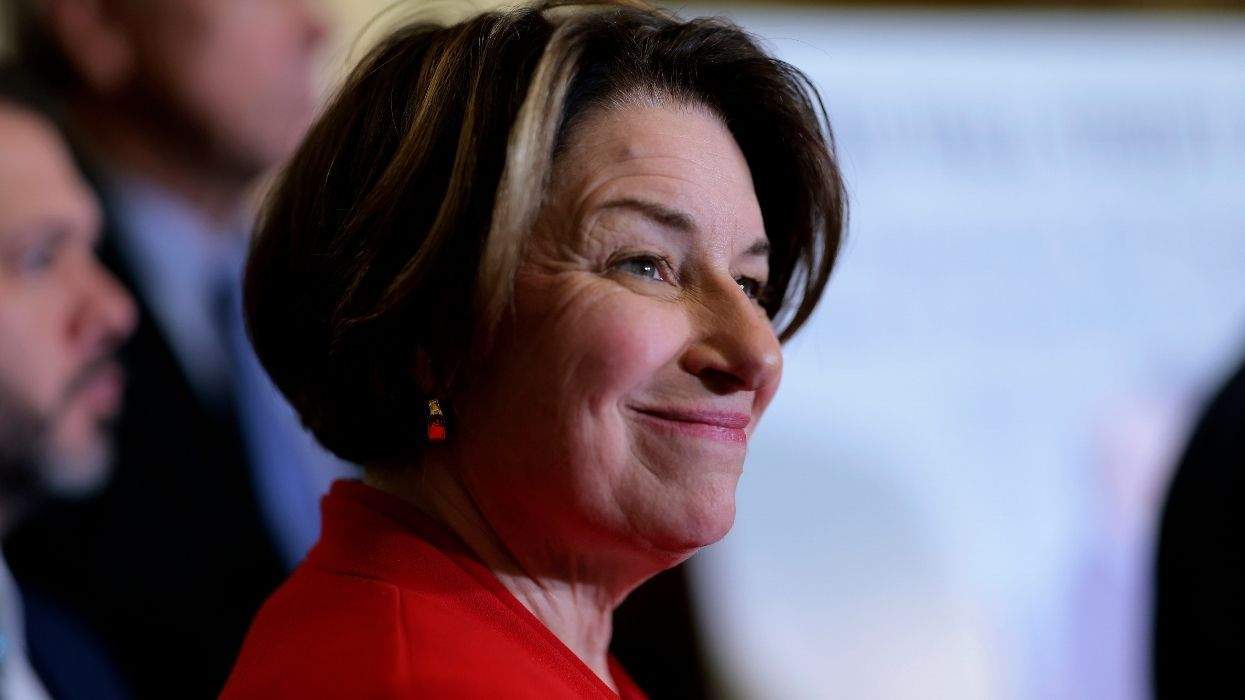A handful of New York State senators awoke last year to find billboards with an ominous message in their districts. The advertisements, sponsored by the National Organization for Marriage, featured the name of the individual lawmaker followed by the phrase, "You're next."
The chilling threat was intended to warn the senators that their votes for marriage equality legislation would cost them their political careers. NOM and its allies, including the Conservative Party of New York, which offers its influential endorsement to Republicans in the state, vowed to campaign against the lawmakers. The effort will face its final test this Tuesday in the general election.
Six New York State senators, including three Democrats and three Republicans, changed their marriage equality position from no to yes between 2009, when the measure failed the Democratic-controlled chamber, and 2011, when it passed under Republican leadership. The three Republicans and one freshman colleague drew the most attention because their votes broke with the majority of their conference. Their political fates stand to influence Republicans in other legislatures as the state-by-state marriage equality campaign moves to locations including Delaware and Rhode Island next year.
Marriage equality campaigners could claim until very recently that no Republican who voted for the issue ever lost his or seat over the stance. That changed in September, when Sen. Roy McDonald, one of the four Republicans who supported the legislation in New York last year, narrowly lost his primary election to a challenger backed by NOM. Another Republican senator, James Alesi, decided not to run for reelection, while senators Mark Grisanti and Stephen Saland survived their primaries and appear to be mounting strong bids in three-way general election contests.
Analysts viewed the primaries, which tend to draw the most committed voters from both parties, as the more daunting challenge for the Republican senators. While polls show that a majority of New Yorkers favor marriage equality, a majority of Republican voters oppose it. Moreover, polling indicates that voters who oppose marriage equality feel very strongly about their view compared to other issues.
NOM attributed Alesi's decision not to seek reelection to his marriage equality vote, but the eight-term Republican from Rochester faced other obstacles in a potential primary bid. He angered local leaders last year when he filed a lawsuit against two constituents over a broken leg he suffered while climbing a ladder on their property. The couple had declined to press trespassing charges against Alesi, who eventually withdrew the suit.
While NOM claimed responsibility for the defeat of McDonald and a close call experienced by Saland, marriage equality advocates argue that the historically low primary turnout hardly makes those races a valid measure of opponents' political power. This year, the primaries were held on a Thursday rather than the usual Tuesday to avoid coinciding with September 11, and the calendar adjustment resulted in even fewer voters than usual for a primary. McDonald lost to challenger Kathy Marchione by about 100 votes out of around 14,000 cast, while Saland defeated challenger Neil Di Carlo by around 100 votes out of almost 10,000 cast.

NOM, on the other hand, has argued that the primary outcomes show the political perils of voting for marriage equality, where the incumbents faced difficulties despite extraordinary financial advantages. The Republican senators received hundreds of thousands of dollars in contributions from figures such as New York City Mayor Michael Bloomberg, hedge fund manager Paul Singer, industrialist David Koch, and Proposition 8 attorney Ted Olson.
Governor Andrew Cuomo, who pushed for the marriage equality legislation, acknowledged in a letter to McDonald that the vote was a "contributing factor" in his defeat. The popular Democrat offered his endorsement had McDonald, a two-term incumbent from Saratoga County, decided to run as a third-party candidate, but the senator declined to continue his bid. His name will still appear on the Independence Party line in the race, which pits Marchione against Democrat Robin Andrews, a married lesbian seeking to become the first openly gay woman elected to the state senate.
Cuomo has since endorsed Senator Saland in the general election campaign. The 11-term incumbent from Poughkeepsie faces Di Carlo, the Conservative Party candidate, and Democrat Terry Gipson in a district with about 8,000 more enrolled Democrats than Republicans.
During the primary, Di Carlo sent mailers mocking Saland for his marriage equality vote. One mailer depicted the senator as a "puppet" of Bloomberg, while another showed him holding the hands of his "two daddies," Bloomberg and Cuomo, under the headline "New York's Modern Political Family."
Senator Grisanti, a first-term incumbent from Buffalo, won his primary against Kevin Stocker by a wide margin. Like Saland, he was targeted with mailers that criticized his marriage equality vote as motivated by money. One mailer of mysterious origins, circulated over email but apparently never mailed, used pornographic images of two men and asked, "How far will a politician go to get in your pants?"
Grisanti leads polling for the general election contest. His opponents include Democrat Mike Amodeo and Conservative Party candidate Chuck Swanick, who has been endorsed by NOM.
NOM did not return requests for comment, but one irony of the campaign against the Republican incumbents would appear to be the threat it poses to the GOP's slim 33-29 control of the state senate. A Democratic-controlled state senate, which arguably could expedite measures such as long delayed transgender rights legislation, would seem to be a less favorable outcome for the organization.















Charlie Kirk DID say stoning gay people was the 'perfect law' — and these other heinous quotes
These are some of his worst comments about LGBTQ+ people made by Charlie Kirk.